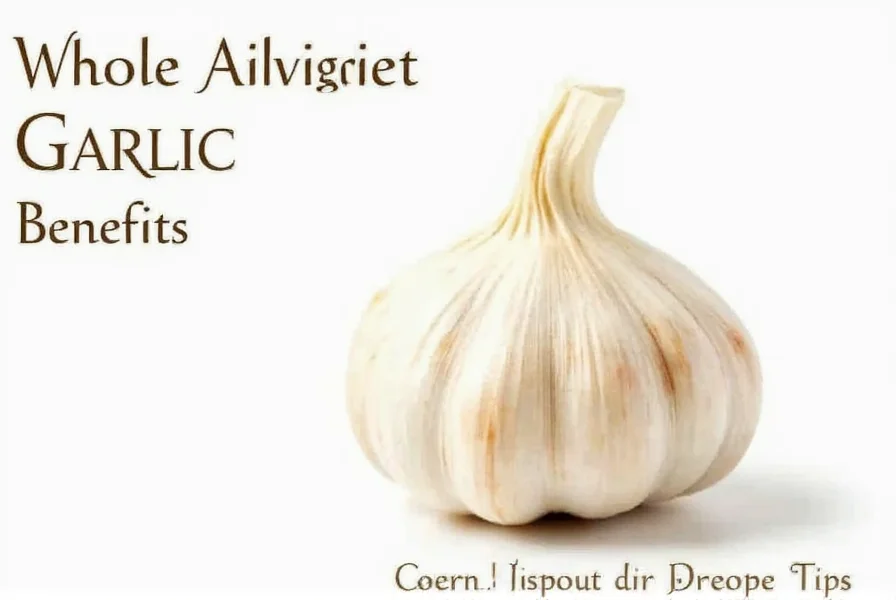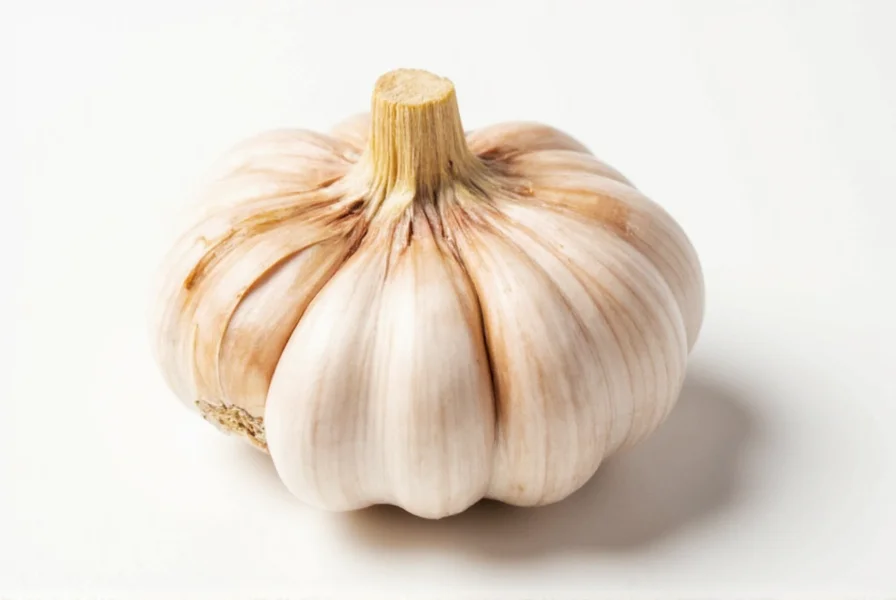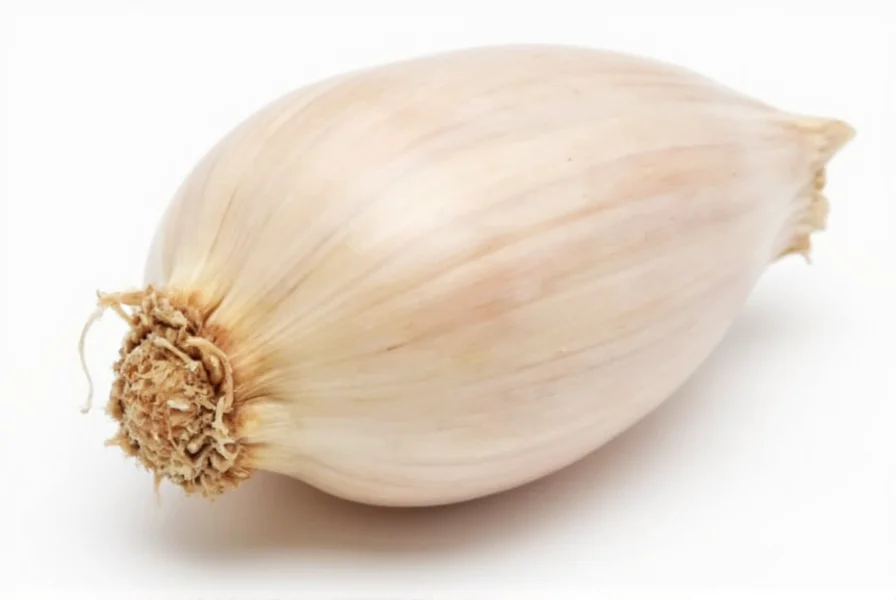Understanding the proper use of whole garlic cloves can transform your cooking and maximize potential health benefits. Unlike processed garlic forms, the intact cellular structure of a whole clove affects both flavor development and bioactive compound availability.
Garlic Anatomy: Bulb vs. Clove Structure
A garlic bulb (often called a head) typically contains 10-20 individual cloves arranged around a central stalk. Each clove consists of:
- Outer papery skin (tunic) - protects the clove
- Flesh - contains sulfur compounds including alliin
- Basal plate - the flat end that was attached to the stalk
When you separate a clove from the bulb, you're working with a whole garlic clove in its natural state. This intact structure is crucial for certain cooking techniques and affects how flavor compounds develop during preparation.

Nutritional Profile of Whole Garlic Cloves
One medium whole garlic clove (approximately 3g) contains:
| Nutrient | Amount per Clove | % Daily Value |
|---|---|---|
| Calories | 4.5 | 0.2% |
| Carbohydrates | 1g | 0.3% |
| Fiber | 0.1g | 0.4% |
| Vitamin C | 0.9mg | 1% |
| Vitamin B6 | 0.04mg | 2% |
| Manganese | 0.03mg | 1% |
| Selenium | 0.3mcg | 0.5% |
The real nutritional power of whole garlic cloves comes from organosulfur compounds like alliin, which converts to allicin when the clove is damaged through cutting, crushing, or chewing. This enzymatic reaction doesn't occur in intact whole cloves, which explains their milder flavor profile.
Health Benefits: What Research Shows
While whole garlic cloves contain the same beneficial compounds as other garlic forms, their intact structure affects bioavailability. Research indicates potential benefits include:
- Cardiovascular support - Studies show regular garlic consumption may help maintain healthy blood pressure levels
- Antioxidant properties - Garlic contains various antioxidants that may help combat oxidative stress
- Immune system support - Some research suggests garlic may enhance certain immune cell functions
Important note: Most research on garlic's health benefits uses aged garlic extract, garlic powder, or crushed raw garlic. The specific effects of consuming whole, unprocessed cloves require more targeted research. Cooking methods significantly impact the bioactive compounds available from whole garlic cloves.
Culinary Applications: Whole vs. Processed Garlic
Understanding when to use whole garlic cloves versus other forms makes a significant difference in your cooking:
- Whole cloves - Ideal for slow cooking methods like braising, stewing, or roasting where they mellow and sweeten without becoming bitter
- Sliced cloves - Good for sautéing when you want visible garlic pieces with moderate flavor release
- Minced/chopped - Releases maximum flavor quickly, best for sauces and dishes requiring strong garlic presence
- Crushed - Provides intense flavor, ideal for dressings and marinades
Professional chefs often use whole garlic cloves in dishes where they want subtle background notes rather than dominant garlic flavor. The intact cellular structure prevents the rapid release of volatile compounds that occurs when garlic is cut.
Practical Techniques for Working with Whole Garlic Cloves
Master these essential skills for optimal results with whole garlic cloves:
How to peel a whole garlic clove efficiently
Place the clove on a cutting board, lay the flat side of a chef's knife over it, and give a firm but gentle tap with your palm. The skin will separate from the clove, making peeling effortless. This method preserves the clove's integrity for recipes requiring whole cloves.
Storing whole garlic cloves properly
Keep unpeeled whole garlic cloves in a cool, dark, well-ventilated place. Never store in plastic bags or refrigerators, which promote sprouting and mold. Properly stored, whole cloves maintain quality for 3-6 weeks. Once peeled, use within 2 days or store covered in olive oil in the refrigerator for up to 1 week.

Common Misconceptions About Whole Garlic Cloves
Several myths persist about whole garlic cloves that deserve clarification:
- "Raw whole garlic is more potent than crushed" - Actually, crushing or chopping activates alliinase enzyme, creating more allicin. Whole cloves contain the precursor compounds but not the active form.
- "Roasting whole garlic bulbs destroys all benefits" - While heat changes the compound profile, roasted garlic develops different beneficial compounds like SAC (S-allyl cysteine) with high bioavailability.
- "Older cloves are less nutritious" - Sprouted garlic actually contains different antioxidants that may offer unique health benefits according to some research.
Optimizing Flavor and Benefits in Your Cooking
To get the most from whole garlic cloves in your recipes:
- For subtle flavor: Add whole cloves early in slow-cooked dishes
- For medium intensity: Slice cloves before adding to dishes
- For maximum health compounds in raw applications: Crush cloves and wait 10 minutes before consuming to allow allicin formation
- When roasting whole bulbs: Cut the top off, drizzle with olive oil, and roast at 400°F for 30-40 minutes until soft
Remember that cooking time and method dramatically affect both flavor profile and potential health compounds. Whole garlic cloves used in long-simmering broths provide different benefits than raw crushed garlic in dressings.
Frequently Asked Questions
Can you eat whole garlic cloves raw?
Yes, you can eat whole garlic cloves raw, but they'll have a much milder flavor than crushed or chopped raw garlic since the cellular structure remains intact. The allicin (responsible for garlic's pungency) doesn't form significantly until the clove is damaged. Eating whole raw cloves provides different compound profiles than processed garlic.
How do you prevent whole garlic cloves from burning when cooking?
To prevent burning, add whole garlic cloves later in the cooking process for quick-cooking dishes, or use lower heat settings. In sautéing, add whole cloves after other aromatics have softened. For roasting, drizzle with olive oil and cover with foil for part of the cooking time. Whole cloves are less prone to burning than minced garlic because they release flavor compounds more slowly.
What's the difference between using whole garlic cloves versus minced in recipes?
Whole garlic cloves provide a much more subtle, mellow flavor that infuses gradually during cooking, while minced garlic releases intense flavor quickly. Chemically, whole cloves maintain their cellular structure, preventing the rapid formation of allicin that occurs when garlic is cut. This makes whole cloves ideal for dishes where you want background garlic notes without dominant flavor, such as braises, stews, and roasts.
Do whole garlic cloves have the same health benefits as crushed garlic?
Whole garlic cloves contain the same precursor compounds as crushed garlic but in different bioavailable forms. Crushing activates the alliinase enzyme that converts alliin to allicin, the compound most studied for health benefits. Whole cloves provide different sulfur compounds that may offer unique benefits, particularly when cooked. Research suggests both forms have value, but through different mechanisms and compound profiles.
How long do peeled whole garlic cloves last in the refrigerator?
Peeled whole garlic cloves stored in an airtight container in the refrigerator typically remain fresh for 5-7 days. For longer storage (up to 3 weeks), submerge peeled cloves in olive oil and keep refrigerated. Check regularly for signs of spoilage including dark spots, slimy texture, or sour smell. Never store peeled garlic at room temperature for extended periods as this can create conditions favorable for botulism.











 浙公网安备
33010002000092号
浙公网安备
33010002000092号 浙B2-20120091-4
浙B2-20120091-4